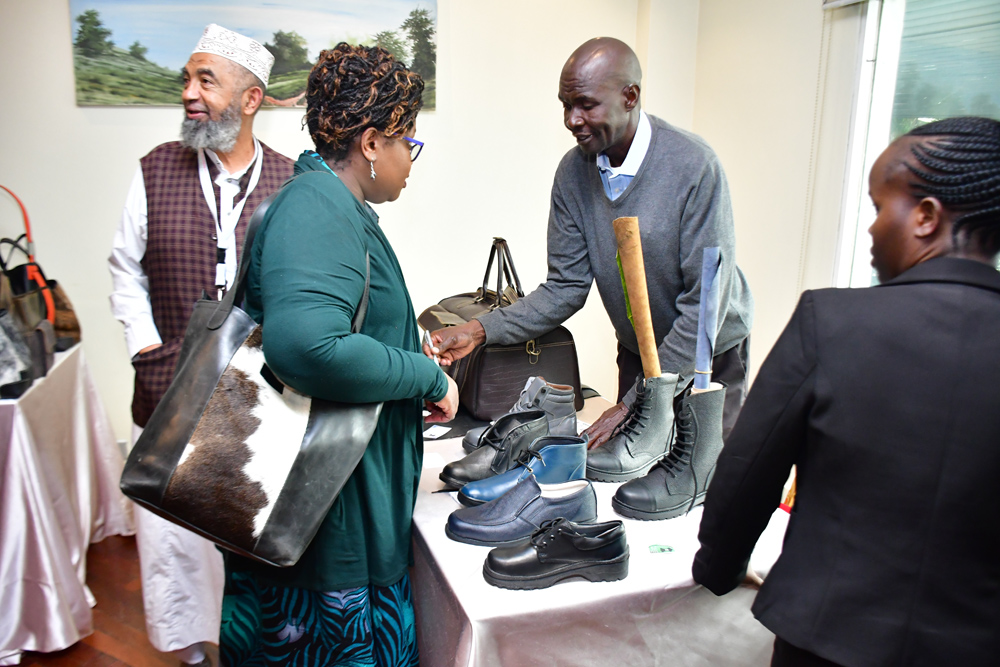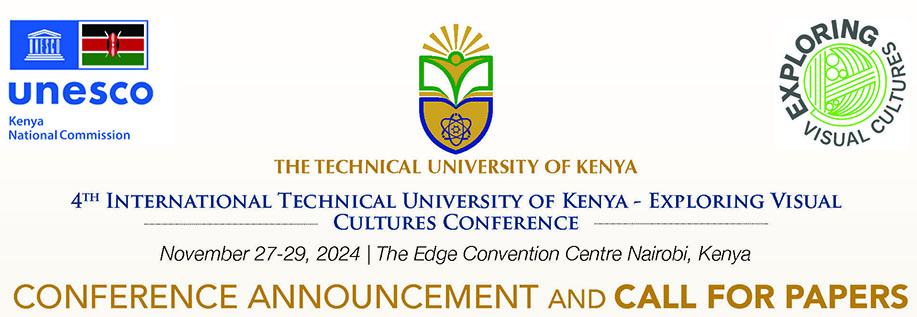The leather industry processing players have challenged learning institutions to redesign training and research on leather production and consumption to match the rising demand for professionals and advanced production technology. Kenya Tanners Association Chairman, Mr. Robert Njoka, said leather processing industry has a shortage of trained leather processing professionals including mechanical technicians to run and maintain plant machinery. Mr. Njoka was speaking during a two-day 1st Workshop on Eco-Tanning Processes in Kenya and the East African Region organized by the Technical University of Kenya (TU-K) in collaboration with State Department for Livestock Development (SDL), Tanners Association of Kenya (TAK) and United Nations Conference on Trade and Development (UNCTAD).
“The leather industry is emerging in Kenya; we, however, have a shortage of professionals as we source for technicians to maintain machinery from India,” Mr. Njoka noted.
He challenged learning institutions to reach out to the leather industry players to help in identifying critical training needs, indicating that they are willing to contribute to the development of curricula and policies in the industry from time-to-time.
This comes even as the Government embarks on concerted efforts to revitalize local leather industry through value addition and production of end products. Currently, a lot of processed leather is exported. Through Bottom-up Economic Transformation Agenda (BETA) 2022-2027, the Government has identified priority intervention areas in the leather value chain, and is committed to set up more common effluent treatment plants and leather industry clusters in Athi River, Narok, Isiolo, Wajir, Nakuru, Kisumu, Eldoret and Mariakani, and to secure linkages with local and overseas markets.
In his speech, read by Mr. Joseph Mbogo, Director, Leather Development in Kenya, the PS, Department of Livestock, Mr. Jonathan Mueke, said the Government will in the next two years ban importation of shoes to boost local leather industry.
“The sector's significance in the country's economic growth has been further emphasized by President William Ruto pronouncement which set a target for the industry to produce 15 million pairs of back-to-school shoes and proposed a ban on shoe imports within two years,” Mr. Mueke noted.
Currently, there are 13 registered tanneries operating in Kenya, with an estimated annual installed capacity of 31,440 and 15,600,000 tons of hides and skins respectively exporting raw pelts, or semi-processed wet blue and crust leather with little or no value addition that meets international green standards.
The PS said the State Department For Livestock Development had identified challenges facing the leather industry including; poor quality of raw material, limited capacity of tanners, lack of appropriate green technologies, high cost of production, poor skills and inappropriate production technologies, quality compliance, weak legal and impediment regulatory framework and unpredictable fiscal/taxation environment at national and regional levels that may hinder the sector’s competitiveness and growth.
Through stakeholder engagement, the Government has therefore setup step-up strategies. “Such workshops help in building capacity and provide training from Government agencies to stakeholders, the private sector, and academia on proper strategies geared towards integrating and implementing green sustainable manufacturing processes and supply chain that meet the standards and certification criteria set out by international leather working groups,” the PS said.
The Acting Vice-Chancellor of the Technical University of Kenya (TU-K), Prof. Paul Shiundu, expressed his excitement on the positive engagement between learning and research institutions, government agencies, industry players and other stakeholders. Prof. Shiundu noted that the deliberations will ensure the sector sets an upward trajectory, providing a viable socio-economic growth environment and providing job and research opportunities for continuing students and graduates. Prof. Shiundu also made a presentation on Innovative enzymatic removal and recovery of hair from a pelt (Beamhouses processes).
Mr. Glen Wilson, UNCTAD, Elzette Henshilwood, South North (SSN), Mr. Ivan Král’, United Nations Industrial Development Organization (UNIDO) and Dr. Dominic Menjo – Presidential Economic Advisor (Head of Agriculture Sector) also gave presentations during the two-day workshop.
The Workshop was coordinated by Dr. George Okwadha from TU-K and Dr. Richard Oruko Ongong’ from the Directorate of Veterinary Services with assistance from Ms. Marygoretty Chepng’etich, Dr. Henry J.O. Ogola, Kimari Wamaitha and Mr. Robert Njoka.
Topical discussions during the workshop included:
- The future of the leather industry in Kenya and the EAC region – Dr. Issack M. Noor (CEO - Kenya Leather Development Council (KLDC)
- Current status of the livestock genetic pools, distribution and environmental impact on the quality and size of hides and skins and leather in Kenya and EAC region - Dr. John Oloo Odiaga (Senior Lecturer - Jaramogi Oginga Odinga University of Science and Technology)
- Current eco-preservation practises of hides and skins and their environmental challenges – Dr. Richard Oruko Ongong’ (Assistant Director Leather Development – State Department for Livestock Development, Kabete)
- Solid salt pollution management along the leather value chain (Preservation salt recovery and recycling) – School of Chemistry (TU-K)
- Wet-white leather and Non -inorganic dyes (tan, crust and leather finishing) - Dr. Arthur Onyuka (Assistant Principal Research Scientist - KIRDI)
- Non-conventional and innovative leather tanning technologies (Organic tanning) – Mr. Newton Owino (Director, Alisam Products Development and Design, Kisumu)
- Eco-sustainable footwear technology and leather products manufacturing – Mr. John Otieno Okumu (Manager, Promotions and Marketing – KLDC)
- Enzymatic degradation of hair wastes from tannery industries effluent - Dr. Arthur Onyuka, (Assistant Principal Research Scientist - KIRDI)
- Microbial recovery of Lime from beamhouse effluent – Dr. George Okwadha, Senior Lecturer (Water and Environmental Engineering, TU-K)
- Recycling of solid leather wastes into fertilizer - Dr. Joel Mwondo, (Leather Department, UON)
- Bioremediation of chromium effluent and biogas generation – Dr. Henry J.O. Ogola, Senior Lecturer (School of food and Agricultural Sciences, JOOUST)
- Absorption of beamhouse effluents using citrus/Lime wastes - Dr. Richard Oruko Ongong’, Assistant Director Leather Development (State Department for Livestock Development, Kabete)
- Sustainable modernization and upgrading of tanning machinery and integration renewable energy in leather industry - Prof. Odera, (Director (CEI&TF), TU-K & Eng. Makaa, Sch. of Electrical & Electronic Engineering, TU-K)
- Kenya Revenue Authority (KRA) – Tax incentives for sustainable leather tanning, manufacturing or recycling (Green Technology) industries. – Ms. Grace Lekasi, Customs Department (KRA)
- Sustainable manufacture of Leather, Environment protection and Management of tanneries – Mr. David Ong’are, Director, Compliance, Enforcement & Field Operations (NEMA)
- Sustainable Occupational Safety and Health Management in tanneries – Dr. Andrew Muruka, (Deputy Director/ Head National Institute for Occupational Safety and Health - Ministry of Labour and Social Protection)
- Sustainable tannery effluent discharge and sludge disposal -– Eng. Nahason Muguna, Manager Director, Nairobi County Water & Sewerage Company (NCWSC)
- Sustainable integration of property rights and innovation protection for leather design/ products – Mr. John Onyango, (Director KIPI)
- Sustainable use of solar as alternative energy in the tanning industry – Eng. Benson Mwakina (Director, Renewable Energy)
- Sustainable integration of property rights and innovation protection for leather design/ products – Mr. John Onyango, (Director KIPI)
- Sustainable use of solar as alternative energy in the tanning industry – Eng. Benson Mwakina (Director, Renewable Energy)
- Regional Trade and tariffs in hides and skin, leather and leather products – Mr. Edward Owango, (Director of Economic Affairs, Ministry of East African Community-Kenya)
- Hides & Skins and leather marketing and export (branding)- KEPROBA
- Marketing of leather and leather products support- Mr. Kassim Were, Kenya National Chamber of Commerce & Industry (KNCCI)
- Policy lobby group for leather tanning and manufacturing industries in Kenya - Ms. Miriam Bomett, Deputy Head of Policy, Kenya Association of Manufacturers (KAM)
- International market for organic tanned leather/products- Mr. Newton Owino /Tasha Nathanson – (Founder 7Leagues.com-Canada)
- Sustainable integration of property rights and innovation protection for leather design/ products – Mr. John Onyango, Managing Director (KIPI)
- Beef and leather marketing in the pastoral regions in Kenya – Esther Kamau, Country Director (Heifer International-Kenya)


